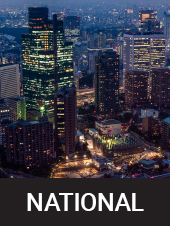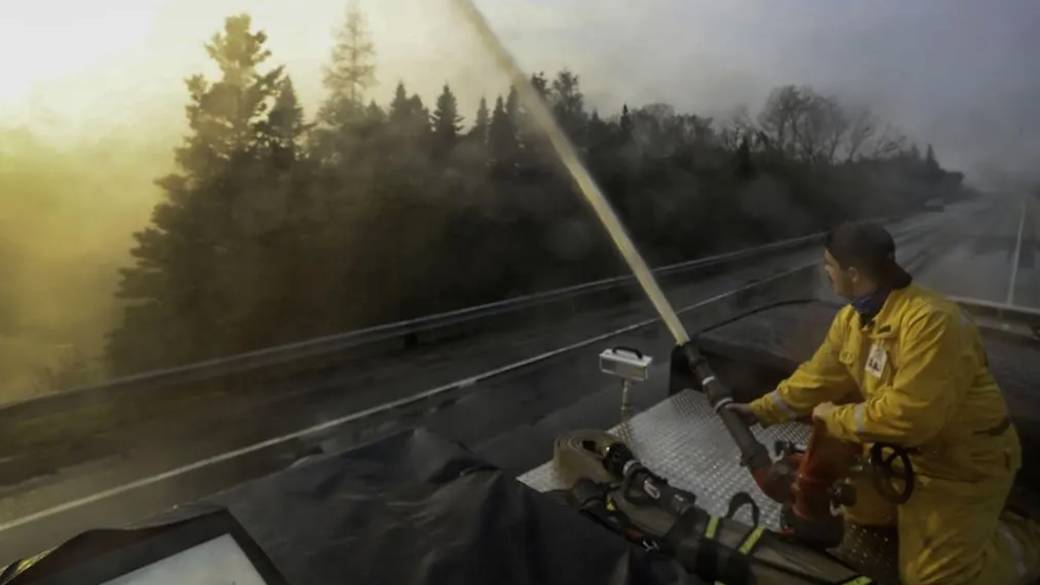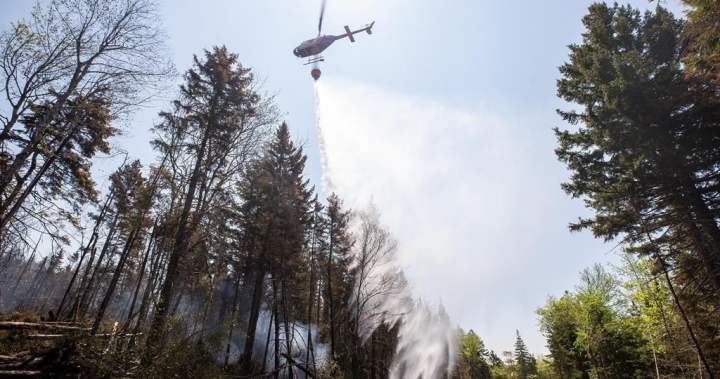Nova Scotia has placed further restrictions on the public as the province faces a dry summer and heightened wildfire risk.

With a burn-ban already in place, officials announced on Tuesday that they’ve shuttered access to forests across the province – including parks – as of 4 p.m.
In an update Tuesday evening, HRM officials confirmed the provincial order includes municipal parks.
“We are telling Nova Scotians to stay out of the woods,” said Premier Tim Houston during a press conference.
The province-wide woods ban restricts the public from unnecessary travel into the forests and partake in activities including hiking, camping, fishing and the use of wood.
The public will also not be allowed to use vehicles in the woods or access trail systems.
Story continues below advertisement
Woods, as defined in the provincial Forests Act, include forested land, rock barren, brush land, dry marsh, bog or muskeg.
While camping is allowed, it is only permitted in official campgrounds.
Private landowners are free to use their own properties but cannot host other guests to use the wooded areas of their properties, the government said.
In the HRM release, the municipality clarified how areas in the municipality will be impacted, while also noting signage on closed areas make take several days to be put up.
“Parks that are all woods will be fully closed. Parks with non-woods areas – such as greenspaces, playgrounds, sports fields and ball diamonds – will remain open for use,” the HRM release reads.

Get breaking National news
For news impacting Canada and around the world, sign up for breaking news alerts delivered directly to you when they happen.
“For parks which have both woods and non-woods areas, the woods are closed and the non-wooded areas remain open.”
The province says the restrictions will remain in place till Oct. 15 or until conditions allow them to be lifted.

2:05
Nova Scotian who lost home in wildfire calling for financial relief
The fine for breaking the rules will result in a $25,000 fine – the same amount as the burn ban penalty, which was put in place last Wednesday.
Story continues below advertisement
The burn ban applies to open fires such as campfires, bonfires, brush fires and fires in chimeneas, as well as any other fire that is not enclosed and uses wood as a fuel.
Non-wood burning devices, such as charcoal, gas barbeques and gas stoves are allowed to be used. The ban also overrides any permits that have been issued for industrial burning.
Trending Now

Titan sub: Final report blames OceanGate’s ‘critically flawed’ safety culture

U.S. may ask tourist, business visa applicants to post US$15,000 bond
To date, seven fines have already been issued to individuals for breaking the burn ban.
“I’m losing sleep about what’s happening … as a society we must do everything possible to protect each other,” Houston said.
“The risk is very high right now.”

2:01
1 year after worst wildfire in Nova Scotia history, community thanks heroic firefighters who responded to the call
Tory Rushton, minister of natural resources, said these steps are necessary to protect the firefighters as well.
Story continues below advertisement
Rural fire departments have raised concerns over the recent dry spell, as their worries grow about low water levels and their ability to respond to emergencies, Rushton explained.
“We’ve had a lot of hot, dry weather, very little rain and there’s no significant rain in the forecast in the near future,” he said.
For those conducting silviculture or forestry activities on their land, Rushton is urging a transition to nighttime operations to reduce the risk of wildfires.
“We are encouraging contractors and homeowners to shift their operations to nighttime hours, we have already seen some contractors make the change,” Rushton added.
While the restriction is in place, people can still access beaches and recreational parks.
— with files from Rebecca Lau
More on Canada
More videos
© 2025 Global News, a division of Corus Entertainment Inc.

